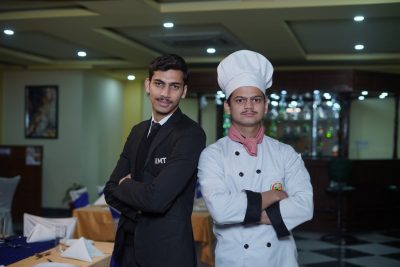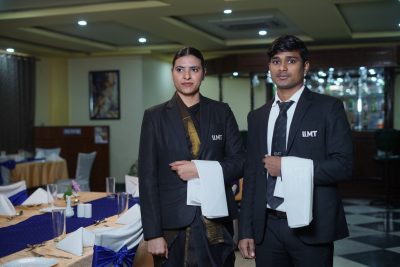Training & Development: The Foundation of Success for Hotel Management Students
The hospitality industry is one of the most dynamic and demanding sectors in the global economy, requiring professionals who can seamlessly blend technical expertise with exceptional interpersonal skills. For hotel management students, comprehensive training and development programs serve as the cornerstone of career success, bridging the gap between theoretical knowledge and practical application in real-world scenarios.
Institutions like the School of Hotel Management Catering & Tourism IIMTU recognize the critical importance of structured training programs that prepare students for the multifaceted challenges of modern hospitality management. These comprehensive educational approaches ensure graduates enter the workforce with both theoretical foundations and practical expertise.
The Critical Role of Training in Hotel Management Education
Training in hotel management extends far beyond memorizing procedures or understanding organizational charts. It encompasses the development of a holistic skill set that includes operational efficiency, customer service excellence, leadership capabilities, and cultural sensitivity. Students must master everything from front desk operations and housekeeping standards to revenue management and crisis handling, all while maintaining the grace and professionalism that defines exceptional hospitality.
The industry’s fast-paced nature means that hotel management students cannot afford to learn solely through trial and error once they enter the workforce. Structured training programs provide the foundation that enables new graduates to contribute meaningfully from day one, while also preparing them for the inevitable challenges that arise in hospitality operations.
Essential Components of Effective Training Programs
Practical Skills Development
Hotel management students must develop proficiency in core operational areas including front office management, food and beverage service, housekeeping operations, and maintenance coordination. Training programs should incorporate hands-on experience with property management systems, point-of-sale technology, and inventory management software that students will encounter in their professional careers.
Customer Service Excellence
The ability to create memorable guest experiences distinguishes exceptional hospitality professionals from merely competent ones. Training should focus on developing emotional intelligence, active listening skills, and the ability to anticipate guest needs. Students must learn to handle complaints gracefully, exceed expectations consistently, and maintain composure under pressure.
Leadership and Team Management
Hotel operations rely heavily on effective teamwork and leadership at all levels. Training programs should emphasize communication skills, conflict resolution, delegation techniques, and the ability to motivate diverse teams. Students need to understand how to create positive work environments that foster employee engagement and reduce turnover.
Cultural Competency and Global Awareness
Modern hospitality serves an increasingly diverse global clientele. Training must address cultural sensitivity, language considerations, and the ability to adapt service approaches to meet varied guest expectations. Understanding international business practices and customs becomes essential for career advancement in major hotel chains.
Industry-Specific Training Approaches
Simulation-Based Learning
Advanced training programs utilize realistic simulations that replicate high-pressure situations students will face in their careers. These might include managing overbooking scenarios, handling medical emergencies, or coordinating large-scale events. Simulation training allows students to practice decision-making in controlled environments where mistakes become learning opportunities rather than career-damaging errors.
Mentorship Programs
Pairing students with experienced industry professionals provides invaluable insights that cannot be gained through textbooks alone. Mentors offer real-world perspectives on industry trends, career development strategies, and the practical application of management principles. These relationships often extend beyond formal training periods, providing ongoing professional support throughout early career stages.
Cross-Functional Exposure
Effective training exposes students to all aspects of hotel operations, preventing the soloed thinking that can hinder career advancement. Students should spend time in different departments, understanding how housekeeping efficiency impacts guest satisfaction, how food service quality affects overall property reputation, and how maintenance standards influence operational costs.
Technology Integration in Modern Training
The hospitality industry continues to evolve rapidly with technological advancement. Training programs must incorporate current and emerging technologies including mobile check-in systems, artificial intelligence applications for personalized guest services, and data analytics tools for revenue optimization. Students need to understand not just how to use these tools, but how to leverage them strategically to enhance guest experiences and operational efficiency.
Measuring Training Effectiveness
Successful training programs incorporate measurable outcomes that demonstrate student progress and program effectiveness. These metrics might include guest satisfaction scores during internships, operational efficiency improvements, and long-term career advancement rates among program graduates. Regular feedback loops ensure training content remains relevant to evolving industry needs.
Professional Development Beyond Initial Training
The learning process for hotel management professionals extends well beyond initial training programs. Continuing education, industry certifications, and participation in professional associations become essential for career advancement. Students should be encouraged to view training as an on-going process rather than a finite educational component.
Industry Partnerships and Real-World Application
The most effective training programs maintain strong partnerships with hospitality industry leaders, providing students with authentic experiences in operating properties. Educational institutions like the School of Hotel Management Catering & Tourism IIMTU exemplify this approach by fostering comprehensive relationships with prestigious 5-star hotels and luxury hospitality brands including renowned chains such as Marriott, Hilton, ITC Hotels, Taj Group, and Oberoi Hotels. These strategic partnerships create invaluable opportunities for students to experience world-class service standards first-hand.
Through collaborations with these internationally recognized 5-star properties, IIMTU students gain exposure to the sophisticated operational systems, premium guest service protocols, and luxury amenities management that define elite hospitality experiences. These partnerships typically include structured internship programs where students work alongside experienced professionals in establishments like ITC Grand Bharat, Taj Palace, Oberoi properties, and luxury Marriott and Hilton hotels, learning the intricate details of managing luxury accommodations, fine dining operations, and exclusive guest services.
The exposure to these premier 5-star hotel environments provides students with insights into advanced revenue management strategies, sophisticated guest relations techniques, and the coordination of premium services such as concierge operations, spa management, and exclusive event planning. Students learn to navigate the elevated expectations of discerning clientele while maintaining the impeccable standards that distinguish luxury hospitality from standard accommodations.
Such partnerships also expose students to cutting-edge hospitality technologies commonly deployed in premium properties, including advanced property management systems, personalized guest experience platforms, and sophisticated customer relationship management tools. This real-world exposure ensures graduates understand both the operational complexities and service excellence standards required in the luxury hospitality segment.
These collaborations ensure training content reflects current industry practices and emerging trends while preparing students for immediate contribution to their chosen organizations, whether in luxury hotels, premium resorts, or other high-end hospitality establishments. Internship programs, co-op experiences, and industry-sponsored projects create seamless transitions from academic learning to professional practice.
Building a Foundation for Lifelong Success
Comprehensive training and development programs create the foundation upon which successful hospitality careers are built. Students who receive thorough preparation in operational excellence, customer service, leadership, and industry knowledge position themselves for rapid advancement and long-term success in this rewarding but demanding field. Programs offered by institutions such as the School of Hotel Management Catering & Tourism IIMTU demonstrate how structured educational approaches can effectively prepare students for leadership roles in the global hospitality industry.
The investment in quality training pays dividends throughout a professional’s career, creating confident, competent leaders who can navigate the complexities of modern hospitality while maintaining the service excellence that defines exceptional guest experiences. As the industry continues to evolve, the importance of comprehensive training and development will only increase, making it an essential component of any serious hotel management education program.
For aspiring hotel management professionals, embracing training opportunities with enthusiasm and commitment sets the stage for a rewarding career in one of the world’s most dynamic and personally fulfilling industries.
Written By
Akanksha Gulati (Asssitant Professor)



